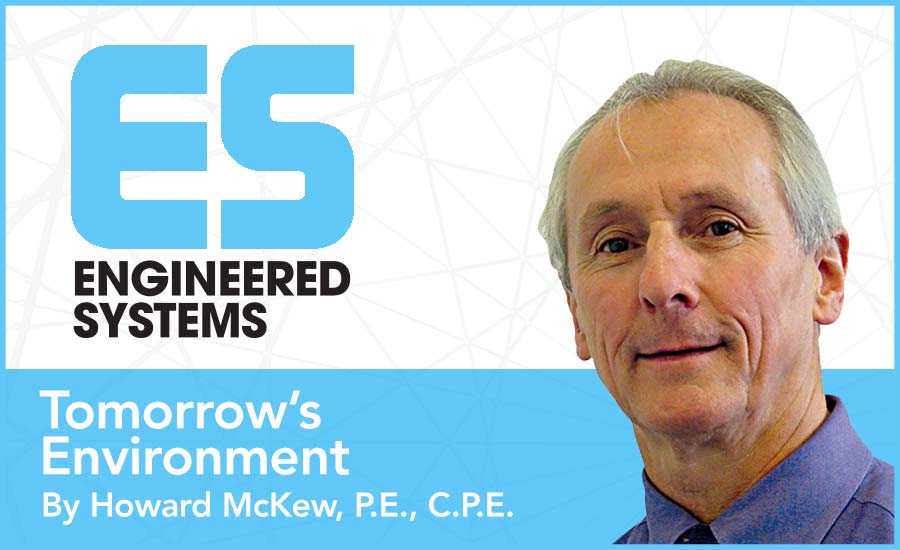To continue my September column’s discussion on mentoring employees, here are just a few topics for mentors to help their students along, with some examples when the mentoring process is customized to a specific individual. Analogous to marking up a map as the engineer drives from Boston to L.A., this person can keep their personal roadmap and update it over time as their personal guide to professional success.
1. Being competent with water system design blending practical experience with theoretical knowledge learned at school.
a. Understand fluids, but also understand how an open water system affects the performance (e.g., most pumps require a minimum net positive suction pressure at the pump’s inlet, or the system will have a problem. Practical experience will lead the engineer to require a compound gage to be furnished and installed at the pump inlet, versus the more traditional pressure gages that start a 0 psig.
b. Recognize that air in a closed water system has the power to prevent flow if not vented (e.g., bigger pumping horsepower isn’t the solution).
2. Being competent with equipment layout and design based on an overall knowledge of what it takes to fabricate, install, commission, and operate the HVAC system and equipment that is being designed. Each of these tasks is a skill unto itself, so the designer should listen and learn from the fabricator, installer, commissioning consultant, and maintenance technician.
a. It is my opinion that the fabricator’s finished product is based primarily on first cost (e.g., custom-built AHUs come with standard automatic damper sizes and are not sized specifically to the system they serve). Refer to ASHRAE 2013 Fundamentalschapter 7 to read more. Apply the AMCA Fan Application Manual.
3. Being well versed in time management maximizes one’s ability to get his job done.
a. An individual should recognize what is their best performance time (e.g., early in the day or later in the day) when taking on the tasks requiring the most concentration.
b. Prioritizing the tasks at hand and delegating those jobs other design team members can do better, faster, and/or more economically (e.g., high paid engineers should not be doing the work that a drafts person or a designer could be doing at a lower pay rate).
4. Being proficient in project documentation is something many don’t recognize as being all that important. So often, when an engineer has to refer back to meeting minutes, field reports, etc., the individual who has taken the time to record pertinent information in a timely manner becomes the more efficient team member.
a. Maintaining meeting minutes and distributing them — with the task, assignment, and due date noted — within 24 hrs is both a time management skill and a premier project management skill.
b. Know the project contract so that the work is performed per this contract with a focus on project closeout and deliverables (e.g., don’t leave the HVAC operator with limited training, inadequate record drawings, etc.).
These are just a few examples of specific categories associated with someone who plans to grow professionally in the HVAC industry. I could write a practitioner’s guide to HVAC success on mentoring, but I digress. No one needs to be the expert in all HVAC categories (design, construct, startup, commission, operate, and maintain).
A company’s mentoring process and the associated mentored recipient’s individual professional development roadmap are not for every employee, but they will benefit those who truly want to achieve sustainable, progressive success in the HVAC industry. They will benefit all the more from the foresight of a company’s mentoring process that, when kept current, the individual can keep with them. In sync with the employee’s success will inherently come company success plus employee retention, profits, repeat client business, and quality control.




